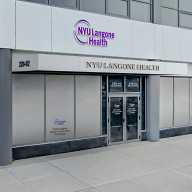Although the specifics of the plan are still being finalized, massive non-violent protests and acts of civil disobedience are expected to take over the city in response to the acquittal of three city detectives in the Sean Bell shooting death.
“There are going to be demonstrations, boycotts in certain places and people going to jail,” said Congressmember Gregory Meeks, who represents the community where the shooting took place.
At a rally at his National Action headquarters in Harlem on Saturday, April 25. Reverend Al Sharpton spoke passionately about the verdict and vowed non-violent protests and civil disobedience that would shut the city down.
“We strategically know how to stop the city so people stand still and realize that you do not have the right to shoot down unarmed, innocent civilians,” Sharpton said during the rally. “This city is going to deal with the blood of Sean Bell.”
Meanwhile, Sean Bell’s fianc/e, Nicole Paultre Bell made her first public comments after the judge’s decision at the Saturday rally, declaring her support for all of the acts of civil disobedience expected.
“I am still praying for justice, because this is far from over,” Paultre Bell said. “Every march, every protest, every rally, I’m going to be right up front.”
Sharpton met with community officials at the local 1199 offices in Manhattan on Tuesday, April 29, in order to discuss specific plans for action, which could occur throughout the next month.
City Councilmember James Sanders Jr., who represents the communities where Paultre Bell and shooting victim Joseph Guzman live, said he planned to attend the Tuesday meeting and that organizers would consider all types of civil disobedience.
“We are going to the seat of power and let the power structure know that all life is sacred and must be protected as such.”
Sanders, who said he would participate in acts of civil disobedience himself when they commence, said that the start date for the planned actions are less important than their sustainability.
“The problem is not going to go away so therefore the protests should not go away,” he said.
Meanwhile, in an exclusive interview with NY1 on Monday night, Sharpton criticized the media for bringing up the potential for violence that could erupt from potential protests.
“I think this city has been far more civil and responsible in our reaction to more injustice than any city in this country,” Sharpton said on NY1. “And, we’ve done it again, and we never get credit.”
BELL VERDICT AFTERMATH:Repairing the police and community relationship
BY PETE DAVIS
While the city continues to deal with the aftermath from the Sean Bell verdict, one area that is getting a great deal of attention is the relationship between the police and the community.
“Many of my constituents feel that this ongoing climate of disrespect and intimidation has severely fractured the relationship between the community and the police department,” said City Councilmember Leroy Comrie, who represents communities in southeast Queens. “It has left many of them fearful that their sons, brothers and fathers may become the next Sean Bell.”
On Tuesday, April 29, State Senate Minority Leader Malcolm Smith, who also represents the area where the shooting took place, held an emergency legislative meeting with representatives from the Senate and Assembly to talk about reforms in the wake of the Bell shooting.
During the meeting, legislators discussed issues - including the appointment of an independent prosecutor to investigate cases of police misconduct as well as training of police officers and questioning of witnesses - that they will bring up in their respective conferences.
“There is no question that there is a need for a legislative response to past shootings and incidents that have been highly controversial,” Smith said. “The proposed legislation that emerged from today’s meeting presented laws that will protect both our constituents as well as our law enforcement agents.”
Immediately after the Bell shooting, local and community leaders formed a legislative taskforce designed to address issues and problems that exist between the police and community.
However, some believe that the task force, which met five times during the year that followed the shooting, left unfinished business.
“After the shooting there was a mass outcry, and then the meetings just stopped,” said Bishop Lester Williams, the Pastor of the Community Church of Christ in Jamaica, who was supposed to perform Bell and Nicole Paultre Bell’s wedding the day after the shooting.
Community leaders are not alone in their belief that this is an issue that needs to be addressed now.
“Clearly we have in many parts of the city a rupture in terms of police/community relations,” Queens District Attorney Richard Brown said a week before the Bell verdict was announced. .
Meanwhile, City Councilmember James Sanders Jr. and Congressmember Gregory Meeks, who both represent the community, said that this is not an anti-police argument.
“Most police set out everyday to do the best job that they can under very difficult conditions,” said Sanders, who plans to hold meetings for the community to express their opinions that he hopes will provide a solution.





























